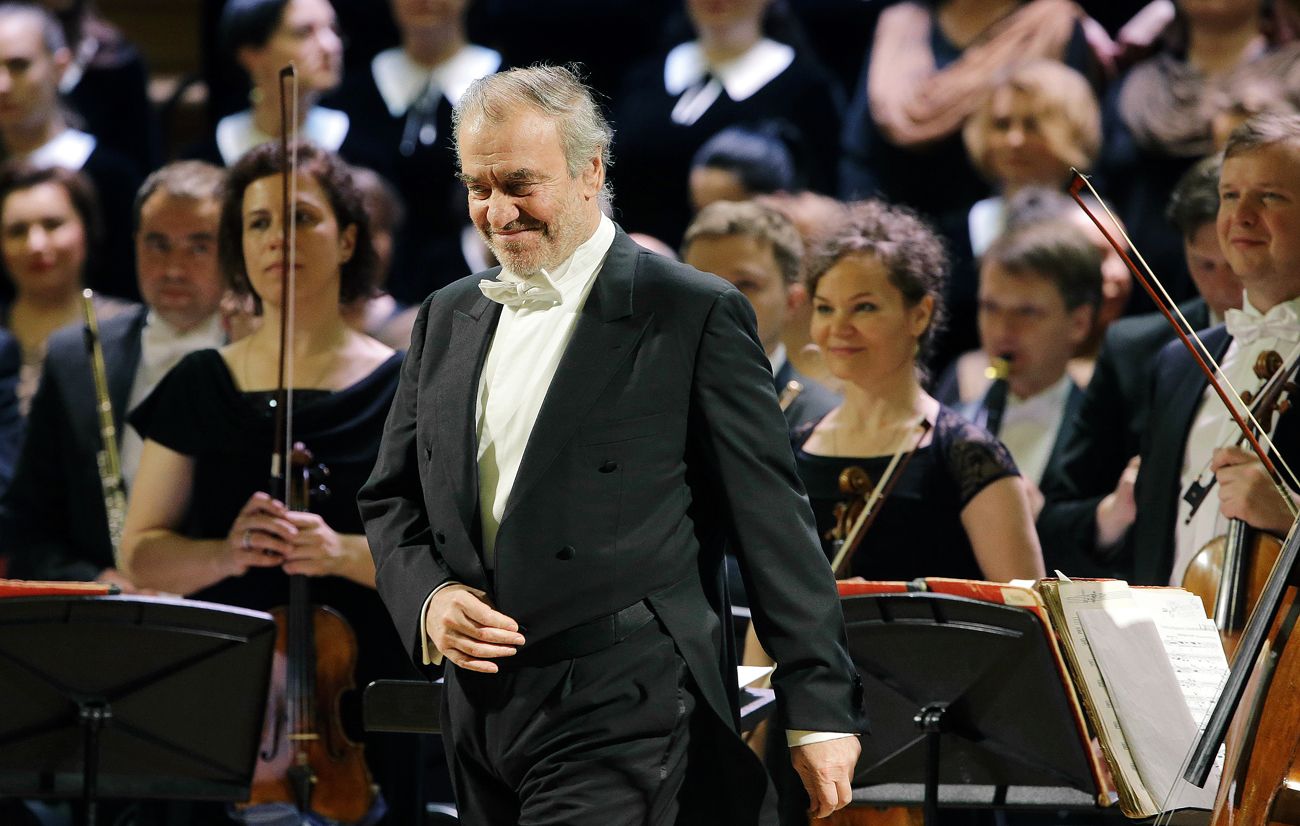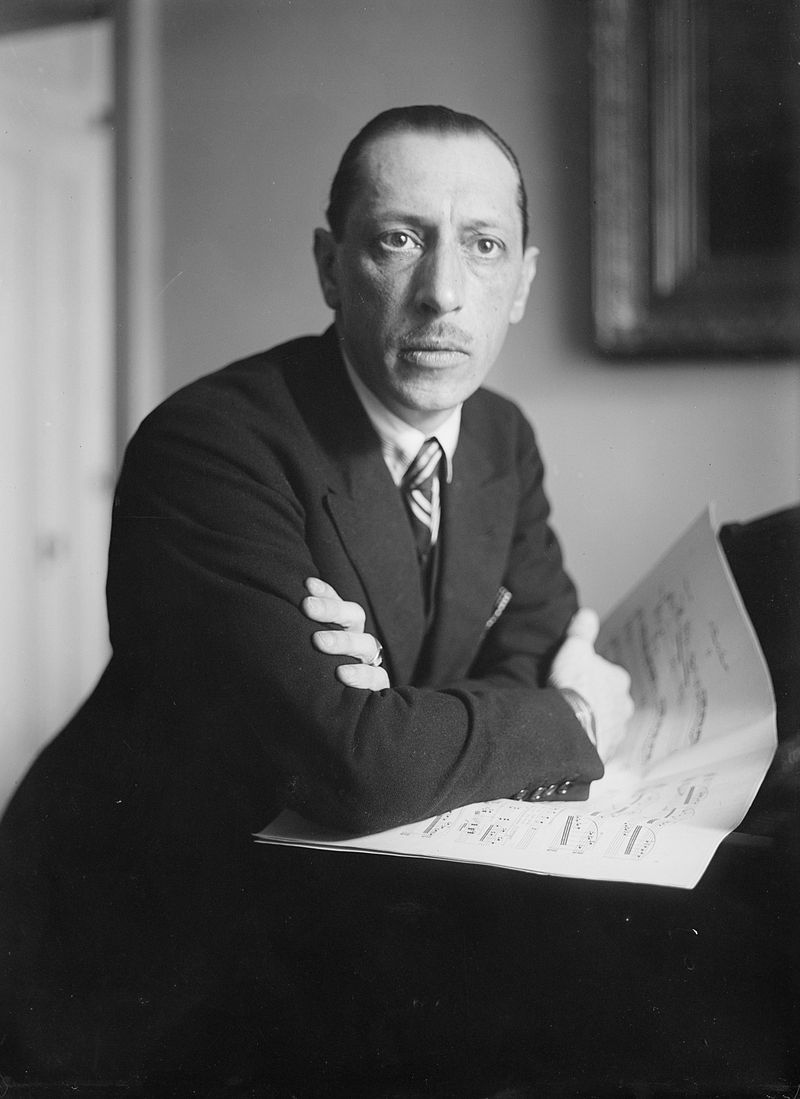
Mariinsky Theatre artistic director, conductor Valery Gergiev seen after a concert given by the Mariinsky Theatre Orchestra at the Moscow Conservatory.
Mikhail Metzel / TASSAccording to a Russian proverb, moving once is like suffering from two fires. This was the condition that the St. Petersburg Conservatory experienced a year ago when it had to empty its historical building on Teatralnaya Square for an urgent renovation. Perhaps it was the conservatory's library that experienced the biggest stress, it had to move countless treasures accumulated over many centuries. Going through the endless piles of sheet music deep inside its cabinets, librarian Irina Sidorenko came upon a stack of old orchestral scores. Documents indicated that the library had discarded them in 1951; they had been considered wastepaper. Fortunately, Sidorenko did not succumb to the panic of moving.
Next year will be Igor Stravinsky's 135th birthday. It is impossible to imagine modern music without this composer. He became a classic not only in his lifetime, but also while he was still young, when in the 1920s he created opus after opus for legendary impresario Sergei Diaghilev. At each premiere, the musical world would be astounded by the revolutionary compositions.
While he was still young, it was predicted that Stravinsky, son of a leading tenor from the Mariinsky Theatre, would have a great future. And it seemed that his every step was followed by contemporaries, that each word, not only note, was written down.
And this is exactly what happened. Thanks to historical records, we know that in the middle of 1908 Stravinsky composed The Funeral Song, which is dated as his fifth opus. It was a piece that the young composer wrote upon the death of Nikolai Rimsky-Korsakov, who gave him private composition lessons since Stravinsky did not attend a conservatory. Stravinsky hoped that The Funeral Song would be played in concerts commemorating Rimsky-Korsakov, but the concerts' organizers rejected it. We know that the performance of the composition was important for Stravinsky because he asked Rimsky-Korsakov's widow and son for permission. The Funeral Song was included in the first Russian symphonic concert in honor of Rimsky-Korsakov in the Great Hall of the St. Petersburg Conservatory.This was a year and a half before the triumph of Stravinsky's ballet The Firebird in Paris, which was followed by the equally remarkable Petrushka and The Rite of Spring, making the composer a key figure in the world of classical music.
The 12-minute The Funeral Song was never performed again, and in the maelstrom of the Parisian premieres, WWI, the Revolution and the Russian Civil War, the composer lost track of it. However, he was deeply saddened by the loss and asked his friends to find it in Leningrad, believing that it was his most important work before The Firebird.
 Igor Stravinsky. Source: Library of Congress / George Grantham Bain Collection Igor Stravinsky. Source: Library of Congress / George Grantham Bain Collection |
Fortunately, Stravinsky scholars indeed studied his every step and tried to find The Funeral Song on many occasions. Natalya Braginskaya, a renowned expert on the composer's works and dean of the St. Petersburg Conservatory, tried to find traces of the composition in the philharmonic, asking Irina Sidorenko for help. That is why when the librarian came across the unknown music in the conservatory, she immediately thought of The Funeral Song.
After the finding, Braginskaya submitted the score to a panel of experts. Under the aegis of the International Musicological Society, she presented the work's title page, the scores with notes written by various performers and other details at the International Scientific Symposium. Afterwards, based on the orchestral score, the sheet music was prepared. This composition, which needs a giant triple symphonic orchestra to play it, will be performed for the first time by the Mariinsky Theater Orchestra. The orchestra will be conducted by Valery Gergiev, who headed the initiative to name 2017 the Year of Igor Stravinsky. Along with The Funeral Song, the orchestra will play a symphonic suite from Rimsky-Korsakov's opera The Legend of the Invisible City of Kitezh.
All rights reserved by Rossiyskaya Gazeta.
Subscribe
to our newsletter!
Get the week's best stories straight to your inbox